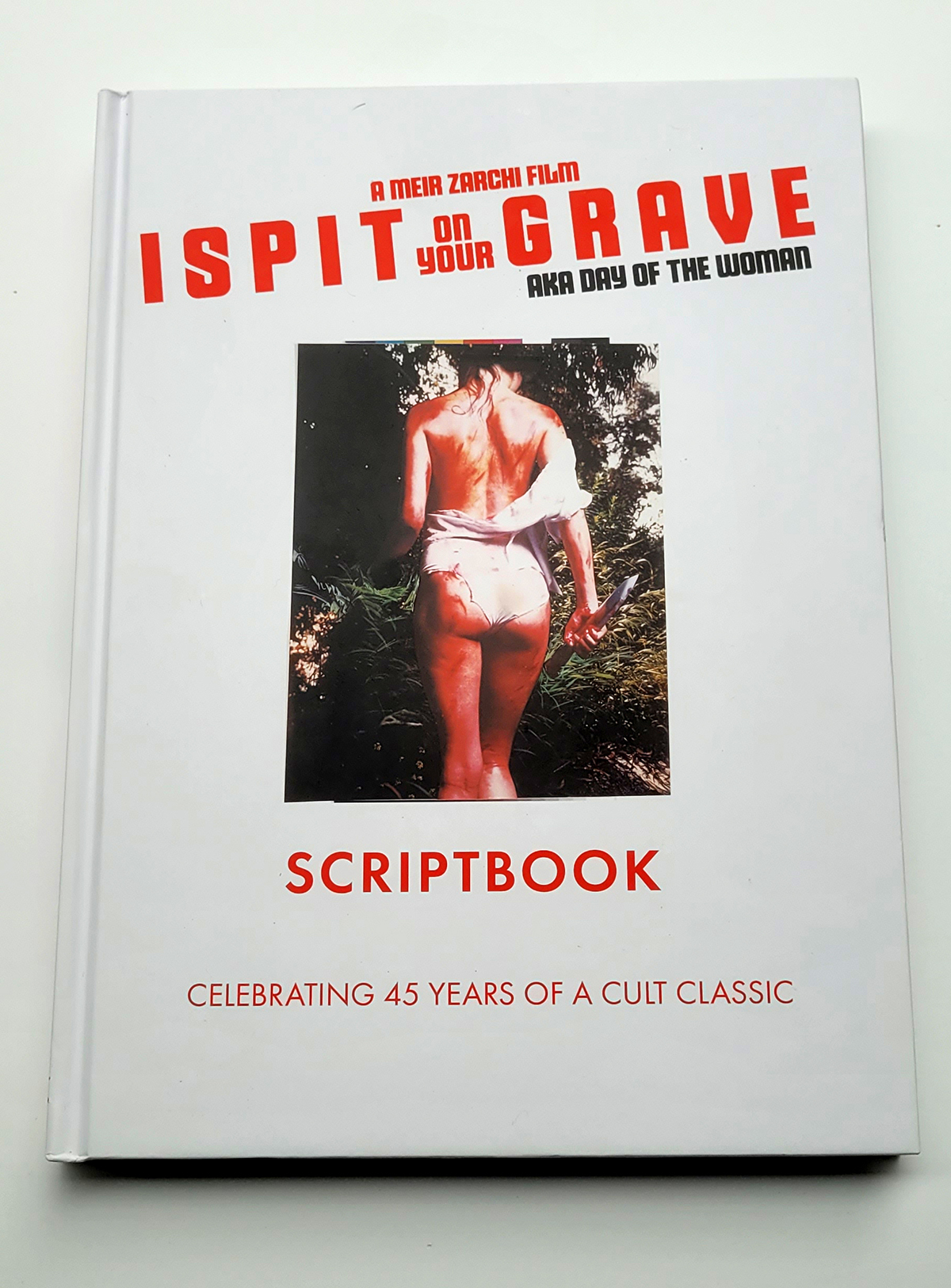“I Spit on Your Grave” stands as one of horror cinema’s most polarizing films, and Printed In Blood’s new anthology, ‘I Spit on Your Grave Scriptbook,’ explores its enduring impact over the past forty-five years. Through a rich blend of essays, critiques, historical photographs, new posters, and the script printed for the first time, this collection not only contextualizes the film but also sparks vital discussions about violence, gender, and morality.
The anthology tackles the film’s brutal portrayal of sexual assault and revenge, focusing on the character of Jennifer Hills. Readers encounter a spectrum of interpretations regarding her journey—ranging from a symbol of female empowerment to a portrayal of gratuitous exploitation. This duality is thoughtfully examined through essays that employ feminist theory and societal critique, fostering a nuanced understanding of the film’s intricate themes.
Historical photographs and the original script provide invaluable insights into the film’s production, enhancing our comprehension of its cultural significance. For scholars and fans alike, the script opens up avenues for deeper engagement with the narrative structure and dialogue.
Critics like Roger Ebert and Gene Siskel, whose reflections are included, provide essential context for the film’s reception. Their critiques underscore the discomfort that “I Spit on Your Grave” elicits and illustrate how public perception has evolved, maintaining a dialogue about ethical storytelling.
The anthology also highlights the film’s influence on visual culture, showcasing new artwork, including the iconic poster featuring the backside of Demi Moore and the retitling to “I Spit On Your Grave”. These contributions celebrate the film’s status and invite readers to reflect on its lasting legacy across diverse artistic mediums.
With an introduction by Meir Zarchi, the original filmmaker, the anthology provides a thorough examination of the film’s cultural impact. Contributors share personal connections to the film, enriching the narrative surrounding Jennifer Hills and solidifying her place in cinematic history as one of the most iconic female characters.
In conclusion, ‘I Spit on Your Grave Scriptbook’ is a vital resource for understanding the complexities of this controversial film. By weaving together critical essays, historical context, and new artistic interpretations, the anthology offers a thought-provoking exploration of a work that challenges viewers to confront their beliefs about morality, representation, and the power of storytelling in cinema. Whether viewed as a groundbreaking narrative or critiqued as an exploitative artifact, “I Spit on Your Grave” remains a pivotal text in the horror genre, and this collection makes a significant contribution to the ongoing discourse surrounding it.

